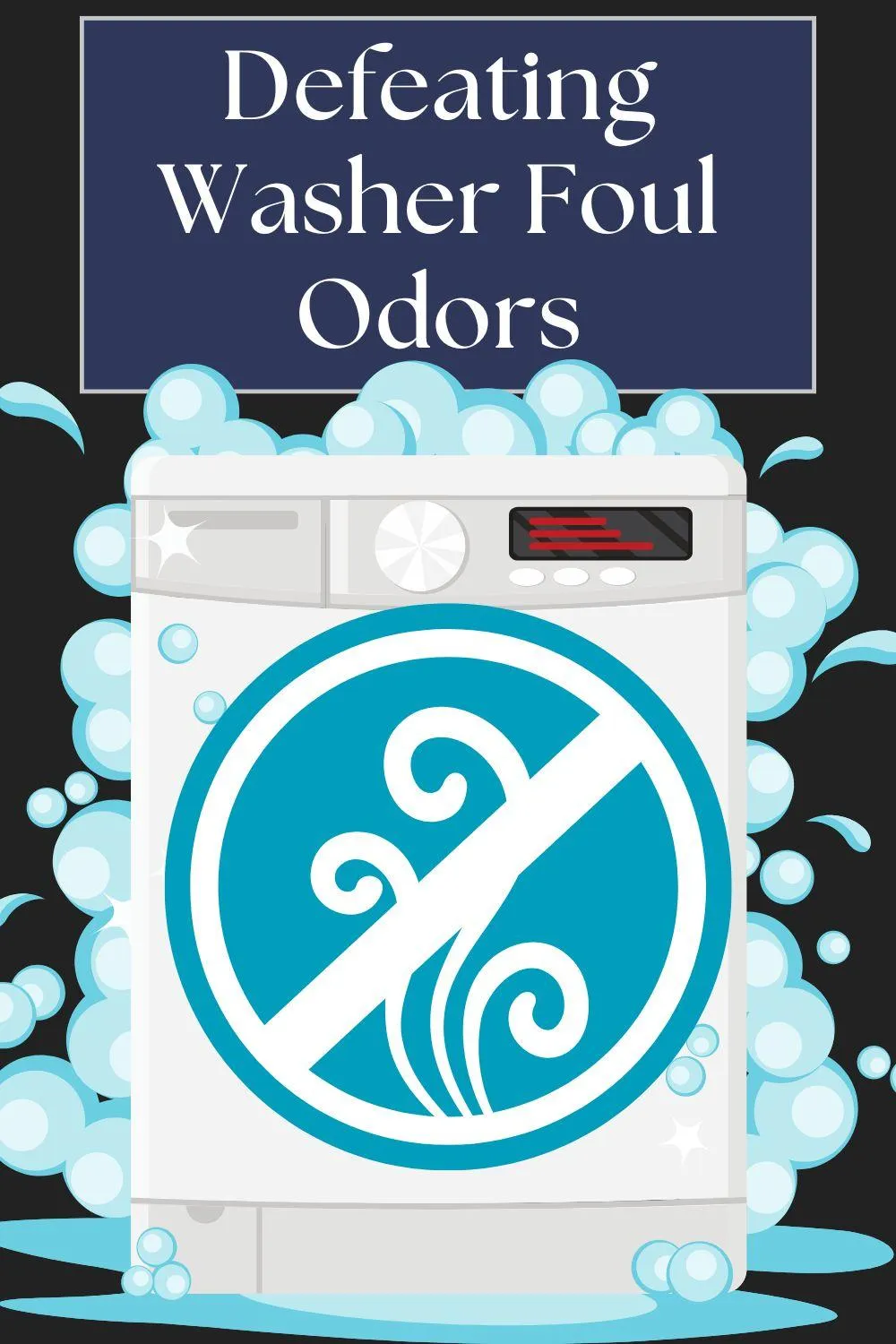THE FASTEST TOOLS IN TOWN
ZIP APPLIANCE REPAIR & SERVICE
Phone: (559) 272-4265
Phone: (559) 272-4265
Appliance Repair Tips For Fresno, CA Residents

Fresh Laundry Guaranteed: Defeating Washer Foul Odors
Transform your laundry experience from stinky to refreshing with our expert guide on defeating washer foul odors. Discover the secrets to keeping your laundry fresh and inviting, wash after wash. - Appliance Boss
Introduction
Washer foul odors can transform your laundry day from a breeze into a stinky chore. Understanding the root causes and implementing effective solutions can ensure your laundry is always fresh and inviting. This guide will delve into everything you need to know to conquer these pesky smells and keep your washer in pristine condition.
Understanding Washer Foul Odors
What Causes Washer Foul Odors?
Washer foul odors are often a result of various factors that create an environment conducive to bacterial growth and residue buildup. These can be attributed to:
Buildup of Mold and Mildew
Mold and mildew thrive in damp, dark places. Inside your washer, the drum, gasket, and detergent drawer provide the perfect breeding ground for these fungi, especially if the washer is not regularly cleaned or ventilated.
Residue from Detergents and Fabric Softeners
Detergents, fabric softeners, and other laundry additives can leave behind a residue that clings to your washer's components. Over time, this residue accumulates, creating a breeding ground for bacteria and contributing to unpleasant odors.

Impact of Washer Foul Odors on Laundry
Unpleasant Smells Transferring to Clothes
When your washer emits foul odors, those smells can transfer to your freshly laundered clothes, leaving them with a musty, sour, or chemical-like scent that’s hard to ignore.
Potential Health Concerns
Prolonged exposure to mold and mildew can lead to health issues, particularly respiratory problems, allergies, and skin irritations. It’s crucial to address these odors promptly to maintain a healthy living environment.
Preventive Measures to Avoid Washer Foul Odors
Regular Cleaning Routine
Implementing a regular cleaning routine is the first line of defense against washer odors.
Cleaning the Drum and Gasket
Clean the drum and gasket with a mixture of water and vinegar. Use a soft brush to scrub away mold and mildew, ensuring all nooks and crannies are free of buildup.
Maintaining Clean Filters
Regularly check and clean the filters to prevent clogging and ensure smooth water flow. This simple step can significantly reduce odor-causing bacteria.
Proper Ventilation
Proper ventilation is essential in preventing the growth of mold and mildew.
Leaving the Washer Door Open
After each wash, leave the washer door ajar to allow air circulation. This prevents moisture buildup inside the drum, reducing the chances of mold and mildew growth.
Improving Air Circulation Around the Washer
Position your washer in a well-ventilated area. Using a fan or dehumidifier can also help keep the space dry and odor-free.
Using High-Quality Detergents
Opt for high-quality, low-residue detergents designed to minimize buildup.
Choosing Suitable Detergents and Fabric Softeners
Select detergents and fabric softeners that are free of harsh chemicals and residues. Look for products labeled as “low-sudsing” or “HE” (high-efficiency).
Avoiding Overuse of Products
Using excessive detergent or fabric softener can lead to residue buildup. Follow the manufacturer's guidelines for the correct amount to use.
Detecting and Diagnosing Washer Foul Odors
Signs of Washer Foul Odors
Recognizing the signs early can help you tackle the problem before it worsens.
Smells Immediately After Washing
If you notice a musty or sour smell as soon as the cycle ends, your washer likely has mold or mildew buildup.
Lingering Odors in Clean Laundry
Freshly washed clothes with a strange odor are a clear sign that your washer needs a thorough cleaning.
Identifying Specific Odors
Pinpointing the type of odor can help you determine the best course of action.
Moldy or Musty Odors
These are typically caused by moisture trapped in the drum or gasket. Mold and mildew thrive in these conditions, producing a distinct musty smell.
Sour or Chemical-like Smells
These odors often result from detergent residue or the presence of bacteria. They can indicate that your washer is not cleaning effectively or that it’s time for a deep clean.
Quick Fixes for Washer Foul Odors
Cleaning with Natural Ingredients
Natural remedies are effective and safe for cleaning your washer.
Using Vinegar and Baking Soda
Run a hot water cycle with two cups of vinegar and a half cup of baking soda. This combination helps break down residue and eliminates odors.
Lemon Juice for Freshness
Lemon juice’s natural acidity can neutralize odors. Add a cup of lemon juice to a hot water cycle for a fresh, clean scent.
Running Cleaning Cycles
Cleaning cycles are designed to tackle odors and buildup effectively.
Hot Water and Vinegar Cycle
Run a hot water cycle with two cups of vinegar. This method disinfects the drum and removes stubborn odors.
Bleach Cycle for Disinfection
Use a bleach cycle with one cup of bleach to sanitize the washer. This method is particularly effective for eliminating mold and mildew.
Cleaning the Detergent Dispenser and Drawer
Removing Residue Buildup
Soak the detergent dispenser in hot, soapy water to dissolve buildup. Scrub it with a brush to remove any remaining residue.
Ensuring Proper Functionality
Check that the dispenser is free of clogs and that water flows freely through it during the wash cycle.
Advanced Cleaning Techniques
Deep Cleaning Methods
For persistent odors, a more intensive cleaning approach is necessary.
Removing Mold and Mildew
Use a mixture of water and bleach to scrub the drum and gasket. Ensure the area is well-ventilated while cleaning to avoid inhaling fumes.
Professional Cleaning Products
Consider using commercial washer cleaners designed to tackle tough odors and buildup. Follow the instructions carefully for the best results.
Sanitizing the Washer
Sanitizing your washer can eliminate bacteria and ensure hygienic conditions.
Using Antibacterial Solutions
Add an antibacterial solution to a hot water cycle to kill germs and bacteria. This step is crucial for maintaining a clean, odor-free washer.
Ensuring Hygienic Conditions
Regularly sanitizing your washer prevents the buildup of harmful microorganisms that can cause odors and health issues.
Maintenance Tips to Keep Washer Odor-Free
Regular Inspections
Routine inspections help identify and address potential issues before they become major problems.
Checking Seals and Gaskets
Inspect the rubber seals and gaskets for mold or mildew. Clean them with a mixture of water and vinegar to prevent buildup.
Inspecting Hoses and Connections
Examine hoses and connections for leaks or clogs. Replace any damaged parts to maintain proper water flow and prevent moisture buildup.
Scheduled Maintenance
Regular maintenance extends the life of your washer and keeps it functioning optimally.
Professional Servicing Recommendations
Schedule annual professional servicing to inspect internal components, clean the drum, and ensure everything is in working order.
Long-Term Care Plans
Consider a maintenance plan with a reputable service provider to ensure your washer remains in top condition.
Updating Washer Settings
Modern washers come with various settings that can enhance performance and reduce odors.
Adjusting Water Temperature
Use hot water cycles regularly to help dissolve detergent residues and eliminate bacteria. Hot water is particularly effective in breaking down mold and mildew.
Optimizing Wash Cycles
Choose the appropriate wash cycle for your laundry load. Use the heavy-duty cycle for heavily soiled items and the clean cycle for regular maintenance.
Long-Term Solutions for Odor Prevention
Upgrading Washer Features
Investing in a high-quality washer with advanced features can help prevent odors.
Investing in Odor-Resistant Models
Look for washers with antimicrobial components and self-cleaning cycles. These features can significantly reduce the likelihood of odor buildup.
Modern Technologies for Cleanliness
Opt for washers with features like steam cleaning and advanced filtration systems, which enhance cleanliness and odor control.
Lifestyle Adjustments
Incorporating simple habits can prevent washer odors and keep your laundry fresh.
Laundry Habits for Odor Prevention
Avoid overloading the washer to ensure proper water circulation.
Use the correct amount of detergent and fabric softener to prevent residue buildup.
Integrating Preventive Measures
Consider using odor-absorbing products like dryer sheets or washing machine cleaners.
Regularly inspect and clean the washer’s components to maintain hygiene.
Troubleshooting Persistent Odors
Addressing Recurring Odors
Persistent odors may indicate deeper issues that require attention.
Persistent Issues Despite Cleaning Efforts
If odors persist despite regular cleaning, it may be time to check for hidden mold, damaged parts, or plumbing issues.
Seeking Professional Help
Consult a professional technician to diagnose and resolve complex issues. They can provide solutions beyond basic cleaning and maintenance.
Conclusion: Achieving Fresh Laundry Every Time
Achieving fresh, clean laundry is entirely within reach with the right strategies and maintenance. By understanding the causes of washer foul odors and implementing effective solutions, you can ensure your laundry is always fresh and inviting.
Summary of Effective Strategies
Recap the importance of regular cleaning, proper ventilation, and using quality products. Highlight the benefits of professional maintenance and advanced cleaning techniques.
Commitment to Freshness and Cleanliness
Embrace a proactive approach to laundry care, ensuring your washer remains odor-free and your clothes smell fresh every time.
For expert help with washer maintenance and repair, contact Zip Appliance and Plumbing Repair at fresno.ziprepairservice.com/fresno or call (559) 272-4265. We're here to keep your appliances running smoothly and your laundry smelling fresh!

Fresh Laundry Guaranteed: Defeating Washer Foul Odors
Transform your laundry experience from stinky to refreshing with our expert guide on defeating washer foul odors. Discover the secrets to keeping your laundry fresh and inviting, wash after wash. - Appliance Boss
Introduction
Washer foul odors can transform your laundry day from a breeze into a stinky chore. Understanding the root causes and implementing effective solutions can ensure your laundry is always fresh and inviting. This guide will delve into everything you need to know to conquer these pesky smells and keep your washer in pristine condition.
Understanding Washer Foul Odors
What Causes Washer Foul Odors?
Washer foul odors are often a result of various factors that create an environment conducive to bacterial growth and residue buildup. These can be attributed to:
Buildup of Mold and Mildew
Mold and mildew thrive in damp, dark places. Inside your washer, the drum, gasket, and detergent drawer provide the perfect breeding ground for these fungi, especially if the washer is not regularly cleaned or ventilated.
Residue from Detergents and Fabric Softeners
Detergents, fabric softeners, and other laundry additives can leave behind a residue that clings to your washer's components. Over time, this residue accumulates, creating a breeding ground for bacteria and contributing to unpleasant odors.

Impact of Washer Foul Odors on Laundry
Unpleasant Smells Transferring to Clothes
When your washer emits foul odors, those smells can transfer to your freshly laundered clothes, leaving them with a musty, sour, or chemical-like scent that’s hard to ignore.
Potential Health Concerns
Prolonged exposure to mold and mildew can lead to health issues, particularly respiratory problems, allergies, and skin irritations. It’s crucial to address these odors promptly to maintain a healthy living environment.
Preventive Measures to Avoid Washer Foul Odors
Regular Cleaning Routine
Implementing a regular cleaning routine is the first line of defense against washer odors.
Cleaning the Drum and Gasket
Clean the drum and gasket with a mixture of water and vinegar. Use a soft brush to scrub away mold and mildew, ensuring all nooks and crannies are free of buildup.
Maintaining Clean Filters
Regularly check and clean the filters to prevent clogging and ensure smooth water flow. This simple step can significantly reduce odor-causing bacteria.
Proper Ventilation
Proper ventilation is essential in preventing the growth of mold and mildew.
Leaving the Washer Door Open
After each wash, leave the washer door ajar to allow air circulation. This prevents moisture buildup inside the drum, reducing the chances of mold and mildew growth.
Improving Air Circulation Around the Washer
Position your washer in a well-ventilated area. Using a fan or dehumidifier can also help keep the space dry and odor-free.
Using High-Quality Detergents
Opt for high-quality, low-residue detergents designed to minimize buildup.
Choosing Suitable Detergents and Fabric Softeners
Select detergents and fabric softeners that are free of harsh chemicals and residues. Look for products labeled as “low-sudsing” or “HE” (high-efficiency).
Avoiding Overuse of Products
Using excessive detergent or fabric softener can lead to residue buildup. Follow the manufacturer's guidelines for the correct amount to use.
Detecting and Diagnosing Washer Foul Odors
Signs of Washer Foul Odors
Recognizing the signs early can help you tackle the problem before it worsens.
Smells Immediately After Washing
If you notice a musty or sour smell as soon as the cycle ends, your washer likely has mold or mildew buildup.
Lingering Odors in Clean Laundry
Freshly washed clothes with a strange odor are a clear sign that your washer needs a thorough cleaning.
Identifying Specific Odors
Pinpointing the type of odor can help you determine the best course of action.
Moldy or Musty Odors
These are typically caused by moisture trapped in the drum or gasket. Mold and mildew thrive in these conditions, producing a distinct musty smell.
Sour or Chemical-like Smells
These odors often result from detergent residue or the presence of bacteria. They can indicate that your washer is not cleaning effectively or that it’s time for a deep clean.
Quick Fixes for Washer Foul Odors
Cleaning with Natural Ingredients
Natural remedies are effective and safe for cleaning your washer.
Using Vinegar and Baking Soda
Run a hot water cycle with two cups of vinegar and a half cup of baking soda. This combination helps break down residue and eliminates odors.
Lemon Juice for Freshness
Lemon juice’s natural acidity can neutralize odors. Add a cup of lemon juice to a hot water cycle for a fresh, clean scent.
Running Cleaning Cycles
Cleaning cycles are designed to tackle odors and buildup effectively.
Hot Water and Vinegar Cycle
Run a hot water cycle with two cups of vinegar. This method disinfects the drum and removes stubborn odors.
Bleach Cycle for Disinfection
Use a bleach cycle with one cup of bleach to sanitize the washer. This method is particularly effective for eliminating mold and mildew.
Cleaning the Detergent Dispenser and Drawer
Removing Residue Buildup
Soak the detergent dispenser in hot, soapy water to dissolve buildup. Scrub it with a brush to remove any remaining residue.
Ensuring Proper Functionality
Check that the dispenser is free of clogs and that water flows freely through it during the wash cycle.
Advanced Cleaning Techniques
Deep Cleaning Methods
For persistent odors, a more intensive cleaning approach is necessary.
Removing Mold and Mildew
Use a mixture of water and bleach to scrub the drum and gasket. Ensure the area is well-ventilated while cleaning to avoid inhaling fumes.
Professional Cleaning Products
Consider using commercial washer cleaners designed to tackle tough odors and buildup. Follow the instructions carefully for the best results.
Sanitizing the Washer
Sanitizing your washer can eliminate bacteria and ensure hygienic conditions.
Using Antibacterial Solutions
Add an antibacterial solution to a hot water cycle to kill germs and bacteria. This step is crucial for maintaining a clean, odor-free washer.
Ensuring Hygienic Conditions
Regularly sanitizing your washer prevents the buildup of harmful microorganisms that can cause odors and health issues.
Maintenance Tips to Keep Washer Odor-Free
Regular Inspections
Routine inspections help identify and address potential issues before they become major problems.
Checking Seals and Gaskets
Inspect the rubber seals and gaskets for mold or mildew. Clean them with a mixture of water and vinegar to prevent buildup.
Inspecting Hoses and Connections
Examine hoses and connections for leaks or clogs. Replace any damaged parts to maintain proper water flow and prevent moisture buildup.
Scheduled Maintenance
Regular maintenance extends the life of your washer and keeps it functioning optimally.
Professional Servicing Recommendations
Schedule annual professional servicing to inspect internal components, clean the drum, and ensure everything is in working order.
Long-Term Care Plans
Consider a maintenance plan with a reputable service provider to ensure your washer remains in top condition.
Updating Washer Settings
Modern washers come with various settings that can enhance performance and reduce odors.
Adjusting Water Temperature
Use hot water cycles regularly to help dissolve detergent residues and eliminate bacteria. Hot water is particularly effective in breaking down mold and mildew.
Optimizing Wash Cycles
Choose the appropriate wash cycle for your laundry load. Use the heavy-duty cycle for heavily soiled items and the clean cycle for regular maintenance.
Long-Term Solutions for Odor Prevention
Upgrading Washer Features
Investing in a high-quality washer with advanced features can help prevent odors.
Investing in Odor-Resistant Models
Look for washers with antimicrobial components and self-cleaning cycles. These features can significantly reduce the likelihood of odor buildup.
Modern Technologies for Cleanliness
Opt for washers with features like steam cleaning and advanced filtration systems, which enhance cleanliness and odor control.
Lifestyle Adjustments
Incorporating simple habits can prevent washer odors and keep your laundry fresh.
Laundry Habits for Odor Prevention
Avoid overloading the washer to ensure proper water circulation.
Use the correct amount of detergent and fabric softener to prevent residue buildup.
Integrating Preventive Measures
Consider using odor-absorbing products like dryer sheets or washing machine cleaners.
Regularly inspect and clean the washer’s components to maintain hygiene.
Troubleshooting Persistent Odors
Addressing Recurring Odors
Persistent odors may indicate deeper issues that require attention.
Persistent Issues Despite Cleaning Efforts
If odors persist despite regular cleaning, it may be time to check for hidden mold, damaged parts, or plumbing issues.
Seeking Professional Help
Consult a professional technician to diagnose and resolve complex issues. They can provide solutions beyond basic cleaning and maintenance.
Conclusion: Achieving Fresh Laundry Every Time
Achieving fresh, clean laundry is entirely within reach with the right strategies and maintenance. By understanding the causes of washer foul odors and implementing effective solutions, you can ensure your laundry is always fresh and inviting.
Summary of Effective Strategies
Recap the importance of regular cleaning, proper ventilation, and using quality products. Highlight the benefits of professional maintenance and advanced cleaning techniques.
Commitment to Freshness and Cleanliness
Embrace a proactive approach to laundry care, ensuring your washer remains odor-free and your clothes smell fresh every time.
For expert help with washer maintenance and repair, contact Zip Appliance and Plumbing Repair at fresno.ziprepairservice.com/fresno or call (559) 272-4265. We're here to keep your appliances running smoothly and your laundry smelling fresh!
If your dryer has been giving you problems, contact Zip Appliance Repair & Service at (559) 272-4265

Appliance Repair In A Zip
If you need a dryer repair call our Team at (559) 272-4265, or visit our online scheduling page to request service.
Appliance Repair
HAVE A QUESTION, CALL (559) 272-4265

Online Offers
Take advantage of our online discount offers - save time and money...

Residential & Commercial appliances
See what our company can do for you

Appliance Repair Tips
If your appliance is not working properly...

1405 Commercial Way ste 100
Bakersfield, CA 93309
Lic # 1116346
Equipment We Sevice
- A Call To Confirm Your Appointment Time
- A Email Detailing Your Assigned Technician
- Information Needed Before The Repair Can Be Started
- An Estimate Of Work To Be Done
© 2025 ZIP APPLIANCE REPAIR & SERVICE LLC







